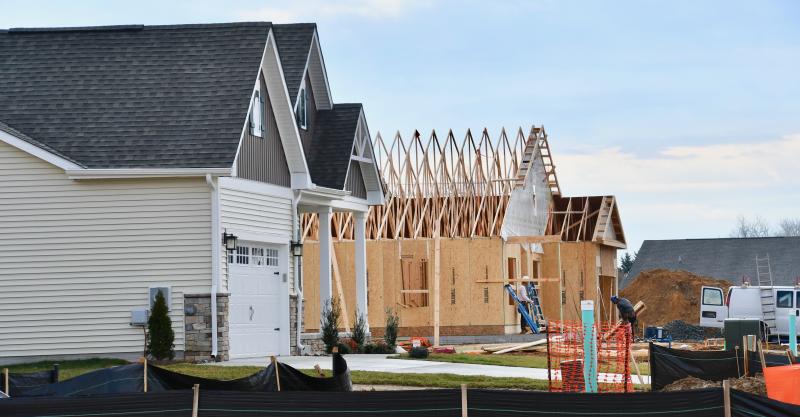An update to a memorandum of understanding on land-use applications between Sussex County and Delaware Department of Transportation is set to be drafted by county legal staff.
At its March 10 meeting, Sussex County Council agreed to proposed changes during a presentation by assistant county attorney Vince Robertson and new DelDOT Director of Planning Marc Cote. The changes are the result of planning and zoning commissioners’ and public input.
“What we want to do with this agreement is to make sure we have all the DelDOT information before hearings,” Robertson said. “All agreed that it needed to be reorganized for clarity into a more readable format.”
He said the format would not follow the original 1988 memorandum as previously suggested. He said when possible, the agreement will include easy-to-read outlines and lists.
Robertson said since the public record has been closed, there will be no further public comment. A rewritten draft will be presented to county council in the near future.
One section of the agreement has drawn criticism from members of a grassroots group, which has provided comments throughout the process to draft a new agreement. Sussex Alliance for Responsible Growth claims the memorandum is negligent because, in some cases, it allows developments to cause failing intersections.
The 1988 agreement included only rezonings, while the new agreement covers all land-use applications, including subdivisions, residential-planned communities and conditional uses.
Level of service
Under the agreement, a level of service D – approaching unstable traffic flow and delays – at intersections should be maintained whenever possible. Road improvements would be tied to maintaining a level of service D.
When DelDOT determines, on the basis of its analysis, that a land-use decision would change the level of service on adjacent or nearby roads, the county could not approve an application unless the developer provided road improvements to maintain at least a level of service D. However, county officials would have an option to approve an application by providing reasons in writing why a developer would not be responsible for all or part of proposed road work.
National level-of-service standards are ranked from A, free-flowing traffic, to F, gridlock and breakdown of a transportation system. D is considered borderline. E is considered operating at capacity.
Cote said the scope of a traffic-impact study would reveal the current level of service and what improvements would be required based on current land use and committed developments in the area as provided by county planning and zoning staff. Rich Borrasso, representing SARG, said the section is a major flaw in the agreement.
In a March 9 letter, the group asked county council to consider an amendment in the level-of-service section, but no change was proposed during the meeting.
While a level of service D is recommended, the agreement notes that a level of service D is not always attainable when it creates an “undue burden” on a property owner looking to develop a parcel when other developments in the area also contribute to the level of service. The agreement notes that other factors, such as project size, may mitigate against attaining a level of service D.
In those cases, if the level of service is below D – at E or F – prior to the impact of the proposed land use, the existing level, even below D, would be allowed.
Borrasso said the agreement should not allow level of service to fall below D. “Accepting a failing LOS is negligent. Would we accept a failing sewer system, an overloaded utility transformer, a failing bridge, failing building codes, inadequate police coverage, failing EMS unit or broken fire suppression systems?” he asked.
Phasing of projects
Among key provisions is a requirement that DelDOT planners provide any subdivision phasing plans to county officials prior to public hearings. That information has not been provided in the past.
Cote said on some large developments, DelDOT ties the number of units to completion of road improvements. He said the preferred method to phase projects is limiting building permits.
Councilman Irwin “I.G.” Burton of Lewes asked what happens if a builder's timeline changes during construction, which could affect phasing.
“It will be our best guess with road improvements because there are many other impacts in that decision,” Cote said. “There is a concern when this is done upfront, and we may have to revisit some projects.”
Other than roadwork, phasing is usually required for sewer work, bonding and stormwater management projects.
Robertson said if there is a change in the phasing timeline, the agreement requires that DelDOT officials relay that information to county officials. “We don’t want that to happen outside our involvement and to be just a DelDOT-developer conversation. This way, it’s a lot more transparent. A developer will have to come back to change a condition,” he said.
DelDOT's phasing recommendations presented to county officials are not mandatory in the county's conditions of approval and can be modified by county planning or zoning or council.
Agreement provisions
Under the memorandum, DelDOT officials would pay for and provide a preliminary traffic analysis for residential land-use applications to determine the traffic impact of a development to rate it as diminutive, negligible, minor or major. That finding would trigger three possible actions – a traffic-impact study for major impacts and a traffic-operational analysis or a fee charged to developers for an area-wide study for negligible or minor impacts.
DelDOT staff would have up to 20 working days to complete the analysis. County officials could not consider an application until an analysis is provided.
A public hearing could not be conducted until Sussex County officials receive at least one of the following DelDOT approvals: traffic-impact study; traffic-operational analysis; an area-wide study fee; or an application has been determined to have little impact requiring an analysis.
When county staff and DelDOT officials agree that traffic impact from a proposed development would be none or little, staff can waive the preliminary traffic analysis.
When traffic impact is considered negligible, DelDOT officials can still require a traffic-operational analysis once a project goes through the site-plan review process and if additional information would warrant an analysis.
Based on recommendations from local developers, the agreement has been changed to give developers the option to do a traffic-impact study instead of an area-wide study fee.
Sussex County officials will have the option to require a traffic-impact study even if one is not required by state transportation officials.
Other provisions
Sussex officials – including county administrator, planning and zoning director, and attorneys – would be permitted to participate in discussions between developers and DelDOT on roadway improvements. County officials could provide input, but DelDOT would make final determination on all agreements and road improvements by a developer.
Agreements and subsequent changes to agreements with developers would immediately be forwarded to Sussex planning and zoning staff to be part of the public record.




















































